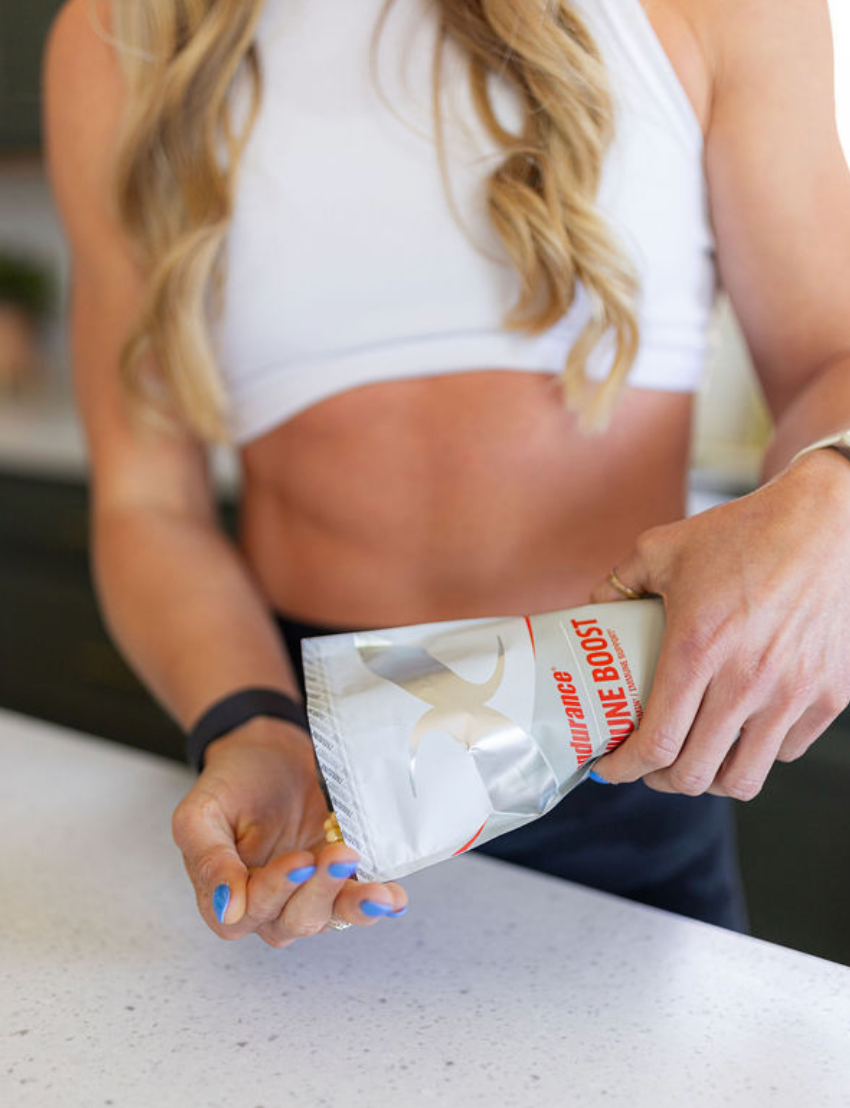Growing up, you may not have paid much attention to your skin, focusing solely on maintaining a healthy diet, believing that as long as you ate well, your skin would naturally follow suit. However, in your twenties, you might have started noticing fine lines and occasional breakouts, realizing that nutrition alone wasn’t enough.
Perhaps it was your 80-year-old grandmother with beautiful skin or an older celebrity with flawless skin who shared their secret of a consistent skincare routine, prompting you to rethink your skin strategy. These admired examples taught you that while good nutrition lays the foundation for health, a dedicated skincare routine is essential for maintaining and enhancing the skin’s appearance, proving that self-care must be holistic to be truly effective.
Sifting Through The World of Skincare
In a world where beauty standards are continually evolving and the beauty industry is booming with endless products, finding the best skincare routine can be overwhelming. A good skincare routine is essential for maintaining healthy, glowing skin and preventing premature aging. But what constitutes the best skincare routine? Let's delve into the fundamentals, essential products, and practices to establish a routine that suits your skin type and lifestyle.
Understanding Your Skin Type
Before diving into specific products and routines, it's crucial to understand your skin type. The primary skin types are:
- Normal Skin: Balanced, not too oily or dry.
- Oily Skin: Excess sebum production, leading to a shiny appearance and potential acne.
- Dry Skin: Lacks moisture, often feels tight and can be flaky.
- Combination Skin: Oily in some areas (usually the T-zone) and dry in others.
- Sensitive Skin: Easily irritated, prone to redness and reactions.
Identifying your skin type helps in selecting the right products and avoiding those that might aggravate your skin issues.
Essential Steps in a Skincare Routine
- Cleansing:
- Why: Removes dirt, oil, and impurities from the skin.
- How: Use a gentle cleanser suitable for your skin type. For instance, gel cleansers work well for oily skin, while cream cleansers are better for dry skin.
- Frequency: Twice daily—morning and night.
- Exfoliation:
- Why: Removes dead skin cells, promoting cell turnover and a smoother complexion.
- How: Use a chemical exfoliant (like AHAs or BHAs) or a physical scrub. Chemical exfoliants are generally gentler and more effective.
- Frequency: 1-3 times a week, depending on your skin's tolerance.
- Toning:
- Why: Balances the skin's pH and removes any residual impurities.
- How: Apply a toner with a cotton pad or your hands, gently patting it into the skin.
- Frequency: Twice daily, after cleansing.
- Treatment (Serums/Essences):
- Why: Target specific skin concerns like aging, hyperpigmentation, or acne.
- How: Choose serums based on your needs—vitamin C for brightening, hyaluronic acid for hydration, retinol for anti-aging, etc.
- Frequency: Once or twice daily, depending on the product.
- Why: Hydrates the skin and locks in moisture.
- How: Use a moisturizer appropriate for your skin type—lighter gels for oily skin and richer creams for dry skin.
- Frequency: Twice daily, after serum.
- Sun Protection:
- Why: Protects the skin from harmful UV rays, preventing premature aging and skin cancer.
- How: Apply a broad-spectrum SPF 30 or higher sunscreen.
- Frequency: Every morning, and reapply every two hours if exposed to the sun.
Additional Steps for a Comprehensive Routine
- Eye Cream:
- Why: Addresses specific concerns around the delicate eye area, such as dark circles, puffiness, and fine lines.
- How: Gently dab a small amount around the eyes.
- Frequency: Twice daily.
- Face Masks:
- Why: Provides an intensive treatment for various skin issues.
- How: Choose masks based on your skin needs—hydrating, clarifying, soothing, etc.
- Frequency: 1-3 times a week.
- Facial Oils:
- Why: Nourish and balance the skin, especially beneficial for dry skin types.
- How: Apply a few drops and press into the skin after moisturizing.
- Frequency: As needed, usually at night.
Customizing Your Routine
Every individual’s skin is unique, and a one-size-fits-all approach doesn’t work for everyone. Here’s how to customize your routine:
- Patch Testing: Always test new products on a small area of skin to check for adverse reactions.
- Layering Products: Apply products from thinnest to thickest consistency to ensure proper absorption.
- Listening to Your Skin: Adjust your routine based on your skin’s reactions. If you notice irritation or breakouts, simplify your routine and introduce products one at a time.
Seasonal Adjustments: Simple Changes
Your skincare needs might change with the seasons:
- Winter: Skin tends to be drier, so opt for richer moisturizers and hydrating serums.
- Summer: Increased humidity may require lighter products and more frequent cleansing to manage oil production.
Vital Lifestyle Changes for Optimal Skin Health
-
Diet: Nourishing Your Skin from Within
A balanced diet rich in antioxidants, vitamins, and minerals is a cornerstone of healthy skin. Antioxidants such as vitamins C and E protect the skin from damage caused by free radicals, which can lead to premature aging and dullness. Foods like berries, nuts, and leafy greens are excellent sources of these protective compounds. Vitamins A and D, found in foods like sweet potatoes and fish, help with skin repair and regeneration. Minerals such as zinc and selenium support the skin’s immune function and overall health. Including a variety of colorful fruits and vegetables, whole grains, lean proteins, and healthy fats in your diet ensures that your skin receives the nutrients it needs to stay vibrant and resilient. -
Hydration: The Essential Element
Drinking plenty of water is crucial for maintaining skin hydration. Water helps to flush out toxins from the body, which can otherwise accumulate and lead to skin issues such as acne and dullness. Proper hydration also ensures that your skin remains supple and elastic, reducing the appearance of fine lines and wrinkles. For a 150 pound person, drinking 75 ounces of water each day is optimal. For those with dry skin, increasing your water intake can significantly improve your skin’s texture and appearance. -
Sleep: The Ultimate Skin Rejuvenator
Adequate sleep is essential for skin repair and overall health. During sleep, your body goes into repair mode, producing collagen and growth hormones that aid in skin regeneration and repair. This process helps to reduce the appearance of fine lines, wrinkles, and dark circles. Lack of sleep can lead to increased stress levels, which can exacerbate skin conditions like acne, eczema, and psoriasis. To promote healthy skin, aim for seven to nine hours of quality sleep each night. Establishing a consistent sleep routine, creating a restful environment, and avoiding screens before bed can help improve your sleep quality and, in turn, your skin health. -
Stress Management: Keeping Skin Calm
High stress levels can trigger skin issues like acne, eczema, and psoriasis by increasing the production of stress hormones such as cortisol. These hormones can lead to inflammation and exacerbate existing skin conditions. Practicing stress-relief techniques such as yoga, meditation, or regular exercise can help manage and reduce stress levels. Yoga and meditation promote relaxation and mindfulness, helping to lower cortisol levels and reduce inflammation. Regular exercise increases blood flow, providing your skin with more oxygen and nutrients, which can enhance its appearance and health. Incorporating these practices into your daily routine can significantly improve not only your mental well-being but also the health and appearance of your skin.

Common Skincare Myths
- Myth: Expensive products are always better: Price doesn’t always equate to quality. Many affordable products are highly effective.
- Myth: You don’t need sunscreen on cloudy days: UV rays penetrate through clouds, so daily sun protection is essential.
- Myth: Oily skin doesn’t need moisturizer: All skin types need hydration. Choose non-comedogenic, lightweight moisturizers for oily skin.
Building a Sustainable Routine: It’s Simple!
- Consistency is Key: Stick to your routine and give products time to work. It can take several weeks to see noticeable results.
- Quality Over Quantity: Focus on a few high-quality products rather than overwhelming your skin with too many.
- Educate Yourself: Stay informed about ingredients and their benefits. This helps in making better choices for your skin.
Consulting Experts for Skin Care Guidance
If you have persistent skin issues or are unsure about your skin type, consult a dermatologist. They can provide personalized recommendations and treatments, such as prescription retinoids for anti-aging or professional-grade chemical peels for hyperpigmentation.
The Road to Flawless Skin
The best skincare routine is one that is meticulously tailored to your specific needs, consistently followed, and adaptable to changes in your skin and environment. By taking the time to understand your unique skin type and selecting the right products accordingly, you set the foundation for effective skincare. Incorporating healthy lifestyle habits, such as proper nutrition, hydration, adequate sleep, and stress management, further enhances your skin’s health and radiance. Remember, skincare is not just a daily chore but a meaningful form of self-care. By investing time and effort into understanding and nurturing your skin, you will not only see immediate benefits but also enjoy long-term rewards. Your skin will reflect the care and attention you give it, resulting in a glowing, healthy complexion that stands the test of time. So, prioritize your skincare routine, be patient, and let your skin show its gratitude through its natural beauty and vitality.









Leave a comment
This site is protected by hCaptcha and the hCaptcha Privacy Policy and Terms of Service apply.